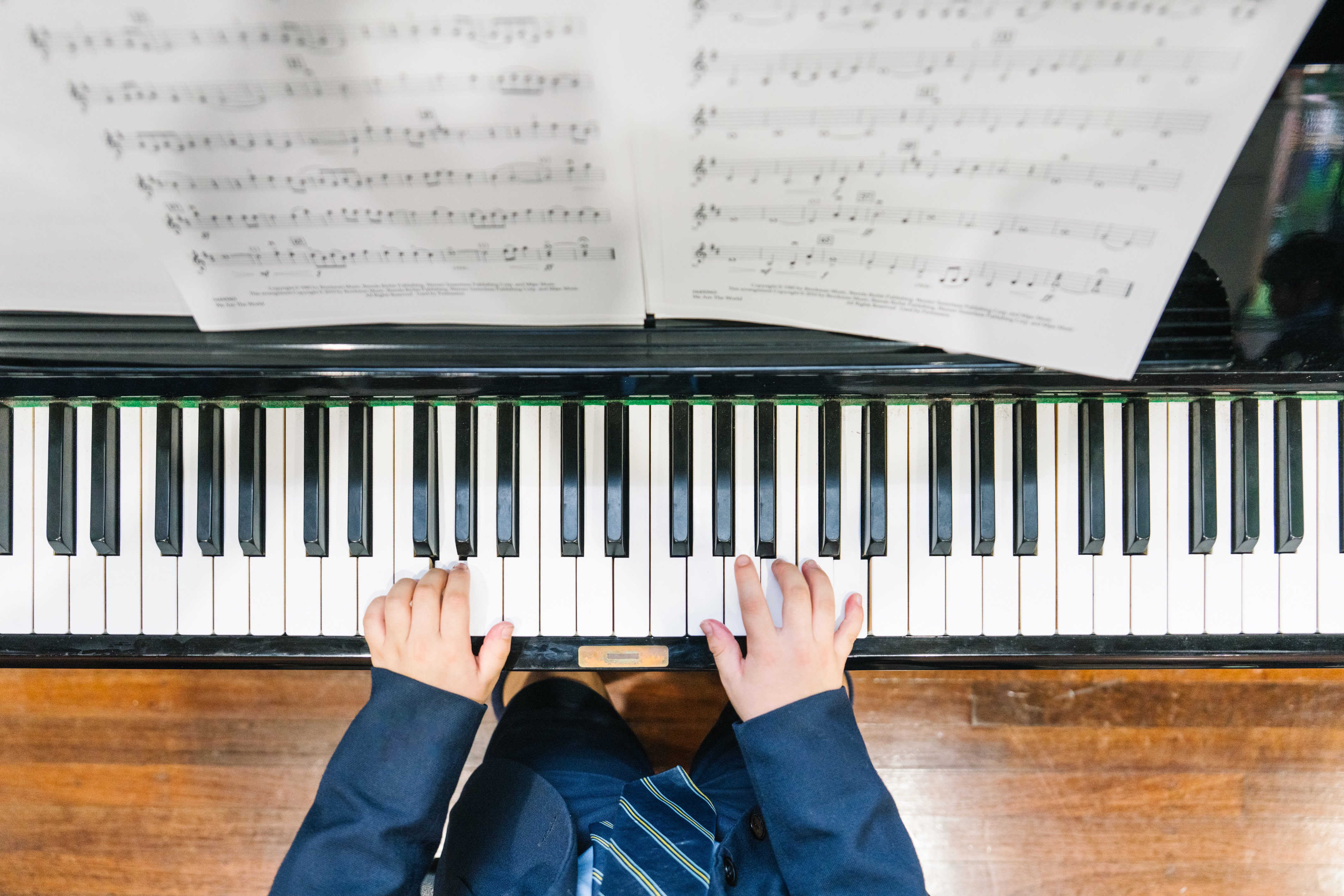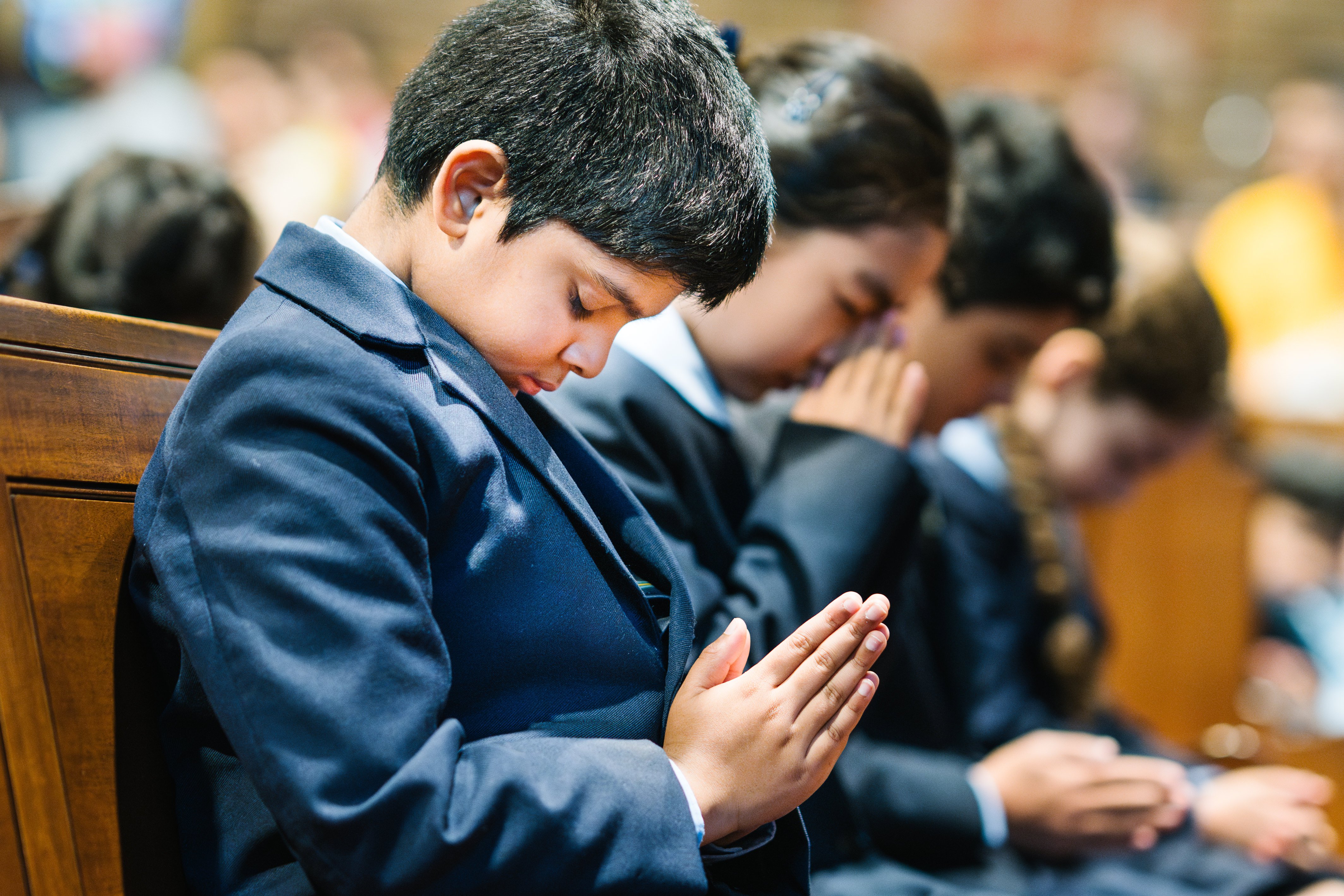Co-Curricular

SCIENCE AND TECHNOLOGY
“A good scientist is a person in whom the childhood quality of perennial curiosity lingers on. Once they get an answer, they have other questions.” - Frederick Seitz
During weekly lessons, students investigate, experiment, and share their thinking in small groups, individually, and as a class. Science and Technology lessons are connected to the Units of Knowledge implemented in each classroom.
By studying Science and Technology, students explore scientific concepts and gain knowledge and understanding of the world. They develop skills in conducting scientific investigations and designing and producing solutions.
Science and Technology units are constructed using the 5E Model - Engage, Explore, Explain, Elaborate, and Evaluate. This evidenced-based approach is effective in guiding the teaching and learning of science because it supports active, constructivist learning. Students draw on their prior knowledge, pose questions, participate in hands-on experiences, and conduct exploratory and formal investigations, to develop their own explanations about scientific phenomena. They are given opportunities to represent their developing understanding using literacy skills. Students develop science inquiry skills and an understanding of the nature of science when actively engaged in the learning process.

LITERACY
Pre-K
Pre-Kinder classes participate in a weekly Literacy Centre lesson, including shared and modelled reading time and learning response activities (eg. illustrating, writing), with a focus on early literacy skills. There is also an opportunity to explore the Literacy Centre book collections and borrow a fiction or non-fiction book each week.
Years K-6
K-6 students participate in a one-hour Literacy Centre lesson each week with activities including shared and modelled reading and response tasks to develop and extend literacy and research skills. A life-long passion for reading and learning is encouraged with weekly borrowing from a range of fiction and non-fiction literature.
Literacy Resources
A collection of quality literature consisting of fiction and non-fiction books, big books, home readers, and literacy learning resources are provided in the Literacy Centre, classroom libraries, the Science Lab, and shelves around the school, with a focus on student interest and inquiry learning.

MUSIC AT WAHROONGA PREP
Wahroonga Preparatory School offers a comprehensive Music program underpinned by both the Kodàly and Orff Schulwerk approaches.
Kodály Approach
Zoltan Kodàly was a Hungarian composer and music educator. He observed that a child’s natural form of expression comes from their voice and believed that singing should form the basis of music education. The use of the voice is the defining feature of the Kodàly approach.
Orff Schulwerk Approach
The Orff Schulwerk approach was pioneered by German composer Carl Orff. Its foundation was concerned with the child: the needs of the child and nourishing the musicality of each child through elemental activities in music and movement. Active music making, and making connections between sound and movement, are key elements of the Orff philosophy.
A Unified Approach
At Wahroonga Preparatory School, we aim to unify the key elements of both of the above approaches. We place a strong emphasis on developing the whole child through the delivery of the music curriculum, which is primarily through voice. The music classroom provides opportunities for students to sing, percuss (playing on a variety of both tuned and untuned instruments), move, and dance. A number of speech activities are also used to support children's vocabulary and language acquisition skills.
Classroom Music
At Wahroonga Preparatory School, we believe that the music classroom should be an active one, where the children themselves produce the music. The repertoire is chosen carefully at each level and programs are highly sequential in structure. All students attend both classroom music lessons as well as weekly choir rehearsals where they build skills such as in-tune singing, inner hearing, rhythmic skill building, melodic skill building, sight singing, part work, improvisation and composition, memory work, and aural work. Foundational pitch and rhythm skills are taught through the solfege system, where students learn to sing using hand signs and solfa syllables and say rhythms using time names. Music also enhances the education of our children by helping them to make connections and broaden the depth with which they think and feel. For this reason, the music curriculum is interlinked closely with classroom Units of Knowledge.

Choral Program
The Choral Program consists of a Pre-Kindergarten Choir, Kindergarten Choir, Stage 1 Choir, Stage 2 Choir and Stage 3 Choir. For students looking to extend their skills, Junior Vocals (Year 1-2) and Vocal Ensemble (Years 3-6) are also available. Beyond this, children in Years 5 and 6 also have the opportunity to join the Knox Gallery Choir directed by Mr. Warren Fisher, Head of Choirs. The Choral Program aims to build and foster a love of music through singing and develop choral skills. These ensembles often have the opportunity to perform for Assemblies, Chapel Services, and other school events.

Instrumental Program
Strings
All students in Year 1 and Year 2 learn violin through small group instruction. At the conclusion of the strings program, students have the option to continue learning privately and audition to join the various string ensembles.
Ensembles
We have a number of instrumental ensembles at Wahroonga Preparatory School including the String Ensemble , Concertino, Chapel Band and Wind Band . Children in these ensembles attend weekly rehearsals and have the opportunity to attend and perform at events both internal and external to the school.
Instrumental Lessons
Private instrumental tuition is available at Wahroonga Preparatory School, both during and outside school hours. At present, the school offers tuition for violin, cello, piano, clarinet, saxophone, and guitar.

LANGUAGES AND CULTURE | FRENCH
“A different language is a different vision of life” Frederico Fellini
Our aim at Wahroonga Preparatory School is to introduce French language and culture to all our students, as well as to celebrate the cultural diversity of our students within our community. We believe that intercultural understanding opens minds and creates deeper respect and understanding across all communities.
Learning a new language is like taking up a musical instrument. Both require regular practice, repetition, and persistence. We encourage our students to rehearse the language learned in class and practise the skills as often as possible.
Our French Program is designed to develop the macro skills, also known as language modes: listening, speaking, reading, and writing. They are related to 3 Focus Areas: interacting, understanding texts, and creating texts, and form the outcomes of the new Modern Languages Syllabus, NSW. Students perform tasks through play-based activities, songs, stories, and role-play, and use a wide range of texts and resources to rehearse and explore the French language.
Cultural topics are explored, for example, French food and festivals as well as major sporting events such as Le Tour De France. The students research the French Revolution and “La Fête Nationale”. French fashion and “haute couture” is also studied as the students learn about garments and French designers. Famous French landmarks, significant people and artists and their global impact are also explored. The students are always encouraged to think about their own cultures as well as Indigenous cultures. At Wahroonga Prep we greatly value all languages and cultures.
Our digital language platform for Years 3 to 6, “Education Perfect”, helps to build French vocabulary and grammatical skills. For Years K to 2 we use “Word Wall” to reinforce new vocabulary.

SPORT AT WAHROONGA PREP
Sport and fitness is an important part of life at Wahroonga Prep.
Personal Development and Health (PDH)
Focuses on developing interpersonal skills that enable students to interact effectively and respectfully with others, build and maintain respectful relationships and advocate healthy lifestyles. They will develop self-management skills that enable them to take responsibility for their actions and emotions.
Physical Education (PE)
Lessons take place on the Wahroonga Preparatory Campus on the playgrounds or in the hall, depending on the weather and the activities the children are participating in. Students from Pre-Kindergarten to Year 6 are learning to refine fundamental and specialised movement skills in predictable and dynamic learning environments . They will learn to move with confidence, competence, and creativity within and across various physical activity contexts such as gymnastics and dance. Students will learn to control various objects and transition between locomotor and non-locomotor skills.
Intensive Swimming Lessons will also take place throughout the year, with students completing 30 to 45-minute lessons, over the course of a week at the Knox Aquatic Centre.
Sport will take place once a week at Knox Preparatory School where students utilise the expansive grass fields and basketball courts. Sport will match the skills that students are learning during Physical Education lessons and give them the opportunity to apply these to game scenarios. They will participate in small-sided games that focus on ball manipulation, movement sequences, and tactical awareness.
After school sport opportunities are offered; Basketball and Netball teams represent Wahroonga Prep in weekly competitions.

RELIGION
“We must remember that intelligence is not enough. Intelligence plus character—that is the goal of true education.” Martin Luther King Jr
At Wahroonga Preparatory School, all students engage in regular Religious Education lessons, alongside weekly Chapel services. Within these lessons, students are invited to reflect on the Bible, talk with God through prayer, and discover the beauty of God’s creation. In particular, the use of storytelling and Creative Arts enables students to respond with curiosity, imagination, and wonder to the beauty of God’s creation.
Chapel Services
Weekly Chapel services will occur on Tuesday at 8:30am in the Chapel.
Cru Club
This Christian lunchtime club is for students in Years 3 to 6. Students play games, explore the Bible together, and discuss ways to further develop our relationship with God.
